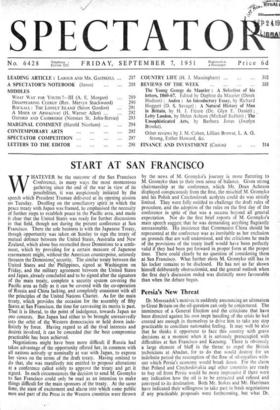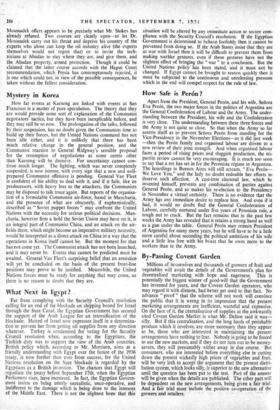Persia's New Threat
Dr. Moussadek's motives in suddenly announcing an ultimatum to Great Britain on the oil question can only be conjectured. The imminence of a General Election and the criticisms that have been directed against his own inept handling of the crisis be had created are enough in themselves to drive him to take any step practicable to conciliate nationalist feeling. It may well be also that he thinks it opportune to face this country with grave decisions at a moment when it is seriously preoccupied with difficulties at San Francisco and Kaesong. There is obviously a large element of bluff in the threat to expel the British technicians at Abadan, for to do that would destroy for an indefinite period the resumption of the flow of oil-royalties with- out which Persia's economy would break down. For the claim that Poland and Czechoslovakia and other countries are ready to buy oil from Persia would be more impressive if there were any indication how the oil is to be extracted and refined and conveyed to its destination. Both Mr. Stokes and Mr. Harriman have indicated their willingness to take part in fresh negotiations if any practicable proposals were forthcoming, but what Dr. Moussadek offers appears to be precisely what Mr. Stokes has already refused. Two courses are clearly open—to let Dr. Moussadek carry out his threat and deprive his country of the .experts who alone can keep the oil industry alive (the experts themselves would not regret that) or to invite the tech- nicians at Abadan to stay where they are, and give them, and the Abadan property, armed protection. Though it could be claimed that the latter course accords with the Hague Court recommendation, which Persia has contemptuously rejected, it h one which could not, in view of the possible consequences, be taken without the fullest consideration.



































